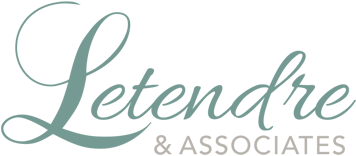When Teams Work!
Patrick Lencioni’s model of teamwork has stood the test of time. It describes both the dysfunctions so commonly found on teams, as well as the five behaviors that create cohesion and effectiveness. (Source: Patrick Lencioni’s The Five Dysfunctions of a Team)
I highly recommend Patrick’s model to teams wishing to examine where they are and how they can become higher-performing.
When team members are fearful of showing vulnerability with each other it prevents the team from building trust.
I was working with a leadership team where one member of the team was always “guarded.” This member of the team rarely shared their point of view on topics, never admitted weaknesses or the need for help, and sometimes even played into the vulnerabilities that others disclosed. These behaviors kept the team from forming trust with each other. Without this foundation, they were at best a working group, and at worst dysfunctional.
I contrast that with another leadership team I have had the opportunity to work with over many years. They are open and honest with each other. They are willing to acknowledge their shortcomings and ask for help from each other. This team has built genuine trust. As a result, they were able to build the other key attributes of high-performance.
When there is trust, teams can engage in the fruitful debate of ideas. Through ideological conflict teams focus on seeking the best solutions, sharing openly and freely, asking probing questions, and genuinely hearing alternative viewpoints to strengthen the solution.
I was a member of a team where the team leader sought to “keep the peace.” To his credit this was due to the fact that the team could readily move from a debate of ideas into a clashing of personalities. What we missed out on as a team however, was the opportunity to be fully heard and weigh in on big decisions through a robust exchange of ideas.
When teams have healthy and productive exchange of ideas, the team members can more readily buy in to and commit to the decisions that are ultimately reached, as they know that their perspectives have been thoughtfully considered.
These teams do not seek consensus as that can bog them down– decisions are often too cautious and/or too slow when seeking unanimous agreement. Rather they ensure that all are heard, various inputs thoughtfully considered, and then they make a commitment to the decision that is reached (regardless of their initial stance).
Another team that I have had the opportunity to work with has honed this healthy exchange of differing points of view. The work they produce and decisions they reach blend the very best from each team member. They walk away with clarity about who, does what, when.

From this individual and team commitment to decisions, comes accountability. Each team member gains comfort in calling on their team members to uphold their commitments to goals, work products, and behaviors as they recognize that the lack of follow-through on any of these things hurts the team as a whole.
Not all well-functioning teams develop this sense of shared accountability. Rather, they grumble about teammates whose behaviors reflect poorly on the team reputation, yet don’t venture out to have a 1-1 conversation with a colleague. Reaching this level of mutual accountability allows teams to pursue ambitious collective results.
High-performing teams focus on results! As Lencioni describes this is the ultimate goal of building trust, engaging in a conflict of ideas, ensuring commitment, and pursuing shared accountability.
But not all teams focus on the “right” results. Some teams find that individual members are more focused on their individual results, status, and getting ahead in their careers, then on the team’s collective goals and results.
(Sources: Patrick Lencioni and Wiley partnership)

If you’d like to receive these Inspirations in your inbox every other week, you can subscribe to Kathy’s Excellence Advantage Inspirations Newsletter.
Kathy Letendre, President and Founder of Letendre & Associates, advises organizations and leaders to create their excellence advantage.
Contact Kathy by phone or text at 802-779-4315 or via email.

